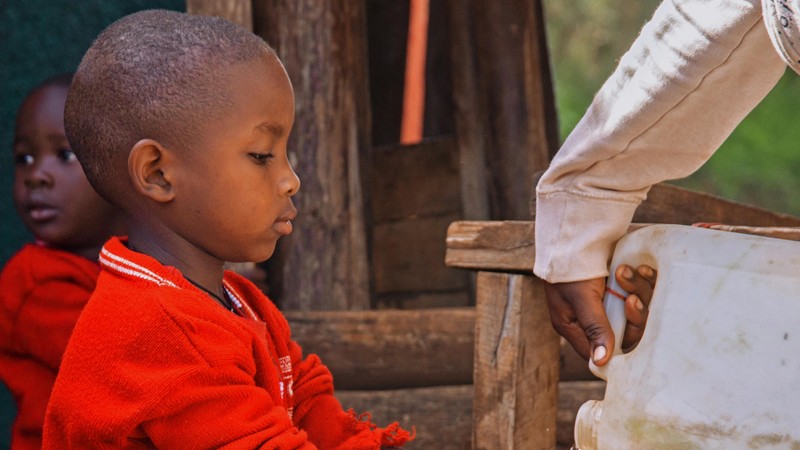
SEASONAL HYGIENE TIPS FOR CHILDREN TO KEEP THEM HEALTHY THIS WINTER
As the seasons change, so does the risk of illness for children. Each season brings its own challenges, but by understanding and following simple hygiene tips, parents can help keep their kids healthy all year.
Springtime is beautiful with blooming flowers, but it also brings pollen and allergens. Kids playing outside can unknowingly bring the allergens into the house. To combat this, encourage them to wash their hands and change their clothes after playing outdoors.
While we all love summer, it brings heat and sweat, which can harbour bacteria and lead to skin infections. During hot days, it's beneficial for children to bathe twice daily and wash their hands regularly to stay clean and healthy. Autumn marks the beginning of the flu season.
Meanwhile, winter is notorious for colds and flu. The cold weather keeps children indoors more often, which increases the likelihood of virus transmission.
In addition, indoor heating can reduce humidity, drying out nasal passages and making kids more susceptible to germs. Teaching children consistent hygiene habits, like washing hands thoroughly and covering coughs, can empower them to fend off infections not only in winter but all year round.
As winter takes a firm grip on South Africa, concerns about seasonal illnesses are on the rise. From the Cape to Gauteng, families are bracing themselves against colds, flu and other winter-related illnesses.
Understanding and implementing seasonal hygiene tips have never been more crucial to safeguarding health during this chilly season.
Research shows that respiratory infections, such as colds and flu, escalate significantly during the months.
The National Institute for Communicable Diseases (NICD) says flu activity peaks between May and September, impacting thousands nationwide each year.
In 2023, more than 1.2 million cases of flu were reported, underscoring the seasonal nature and virulence of winter ailments.
Regular handwashing with soap and water remains the front-line defence against viruses. The NICD reports that proper handwashing can reduce the spread of respiratory illnesses by up to 50%.
Frequent handwashing is crucial in preventing the spread of respiratory infections like colds and flu. Children are playful and touch every surface imaginable.
For this reason, parents should encourage them to wash their hands with soap and water for at least 20 seconds, especially after coughing, sneezing, using the restroom and before eating. If soap and water are unavailable, use hand sanitiser with at least 60% alcohol.
Respiratory droplets are a primary mode of transmission for many viral infections. Teach children to sneeze or cough into their elbow or a tissue (which should be immediately disposed of) and wash their hands afterwards.
In addition, schools are often a place where those germs can multiply. Disinfect to protect and use sanitising wipes and spray which can help kill the germs that may be transported back and forth with your kids’ school items.
The role of personal items
Research shows that everyday items used by children can harbour a significant amount of germs, which can easily spread illnesses. Regularly disinfecting these items is crucial in reducing the risk of infections.
Additionally, strong immune systems play a key role in protecting children from getting sick. Staying physically active, eating a balanced diet full of fruits and vegetables and getting enough sleep can boost a child’s immune system.
Hydration is equally important, so it’s essential to encourage children to drink plenty of water throughout the day
Scientific studies recommend regularly disinfecting commonly used items like pencils, erasers and calculators to minimise germ transmission.
Children shouldn’t share these supplies with others. Clean these items daily with hot, soapy water. It’s important to let them dry completely before using them again to prevent bacterial growth.
Regularly disinfecting these can drastically reduce the spread of illnesses. Strong immune systems help fend off infections. Ensure children get enough sleep, eat a balanced diet rich in fruits and vegetables and stay physically active.
Homework and study areas
Desks and study spaces can accumulate germs. Regularly disinfect surfaces, including desks, keyboards and tablets. Encourage children to wash their hands before and after using these areas.
Sickness protocols
Promptly addressing symptoms can prevent the spread of illness. Keep children home when they show signs of illness like fever, cough or sore throat. Consult a health-care provider for guidance.
Classroom hygiene practices
Schools can implement measures to reduce germ spread.
Advocate for schools to regularly disinfect high-touch surfaces, provide hand sanitiser stations and ensure adequate ventilation in classrooms.
2024-06-26T12:25:53Z dg43tfdfdgfd